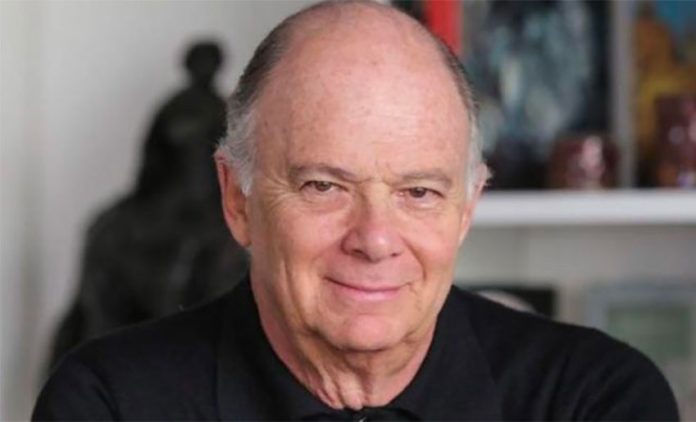Mexican historian Enrique Krauze has received a prestigious Spanish award in recognition of his long career in the academic discipline of history.
King Felipe VI of Spain presented the Ordenes Españolas History Award to Krauze at a ceremony held Wednesday at a historical royal residence near Madrid.
The award, which was first presented in 2018 and comes with a 60,000-euro (US $71,000) prize, recognizes the 73-year-old’s “broad career as a historian, essayist, editor and thinker,” the king said.
The jury that selected Krauze as the winner said his work “covers the entire history of Mexico as a nation from a broad perspective that considers both its actors and institutions.”
“… He offers an independent vision of Mexican history in which indigenous elements combine with the Christian culture received from Europe.”
Among the more than 20 books Krauze has authored are Mexico: Biography of Power, History of the Mexican Revolution: The Economic Reconstruction and Century of Leaders: Political Biography of Mexico.
He was nominated for the award by the National Autonomous University of Mexico, of which the historian is an industrial engineering graduate.
In his acceptance speech, Krauze said he has “many affectionate links to Spain” and that receiving the award in 2021 was “a very high honor” accompanied by “the responsibility to remember the fifth centenary of the conquest of Mexico.”
The historian, who was highly critical of President López Obrador’s request that the King of Spain apologize for the conquest, said the civilization conquered by the Spanish was neither the “Arcadia,” or utopia, depicted by Mexican indigenous historiography nor the “hell” depicted by its “Hispanicist counterpart.”
Krauze also said that the discipline of “history is not a tribunal,” meaning that historians don’t have to establish a definitive version of events.
“… The duty of the historian, especially in the face of such a distant drama [such as the conquest] is not to judge but rather … document, explain and understand,” he said.
Krauze highlighted the importance of the mixing of Spanish and indigenous blood – the mestizaje – in forging a new culture and identity in Mexico, asserting that it was the greatest legacy of the conquerers and colonizers.
“The indigenous influence dominated in diet, both cultures came together in medicine and herbalism and in language, despite the dominance of Spanish … indigenous languages survived and pervaded Spanish with a variety of mexicanismos, tonalities and accents,” he said.
Krauze said that Mexico and Spain should commemorate the conquest together and not allow hate to impede dialogue, as occurred after the former won independence from the latter in a bloody war at the start of the 19th century.
“In that way history will be able to achieve its highest mission, that of being a path of understanding and harmony,” he said.
British historian John H. Elliot won the 2018 Ordenes Españolas History Award, while Spanish historian Miguel Ángel Ladero triumphed in 2019. The prize wasn’t presented last year due to the pandemic.
With reports from El País and El Universal
